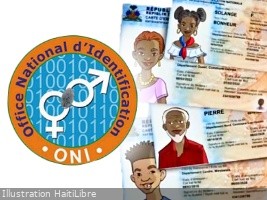In a significant move to bolster regional security and combat cybercrime and transnational crime, Haiti’s National Identification Office (ONI), in collaboration with the Organization of American States (OAS), hosted a high-level discussion and information session this week at the Oasis Hotel. The event, attended by members of the diplomatic and consular corps accredited to Haiti, focused on the technical features and authentication process of the new Unique National Identification Card (CINU).
Led by Reynold Guerrier, Director General of the ONI, the session aimed to enhance the ability of consular missions to detect fraudulent identity documents, which are frequently submitted during visa applications or administrative procedures at foreign offices. The initiative is particularly critical for countries heavily impacted by Haitian migration, including Brazil, Mexico, Colombia, the Dominican Republic, the United States, the Bahamas, and Spain. Representatives from the People’s Republic of China and Japan, a major institutional supporter of the ONI, also participated.
During the session, Guerrier detailed the advanced security features of the biometric National Identity Card (NIC), which includes an electronic chip storing fingerprints, facial recognition data, and iris scans. The card also incorporates a QR code and a 2D barcode, making it highly resistant to forgery. Constructed from durable polycarbonate, the card is valid for 10 years. A live demonstration enabled diplomats to differentiate between genuine and counterfeit documents, while technical materials were distributed to aid their identification and verification processes.
This initiative underscores Haiti’s commitment to modernizing its identification system and strengthening international cooperation in the fight against identity fraud and transnational crime.
